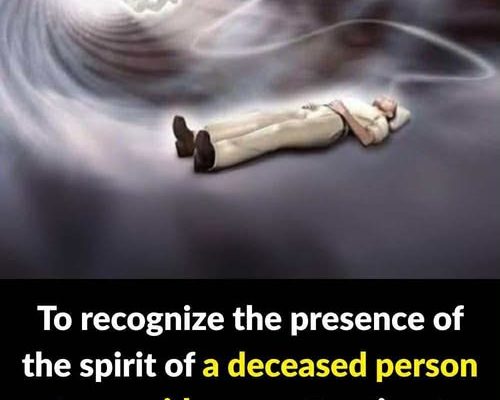Losing a loved one is always tough. The sorrow that comes after can linger for weeks, months, or even years, creating a gap that seems impossible to fill. In that sorrow, many individuals claim they can still feel the spirit of their loved one close by, whether it’s through a voice, a brief vision, or a sense that they are somehow present.
These moments can offer comfort to those who struggle to cope with their loss.
Some people often refer to what is called “after-death communication.” This includes unexpected signs, messages, or feelings that appear to come straight from those who have died. However, not everyone is open to discussing this because they worry that others won’t understand.

The reality is that these experiences are more frequent than we realize, and they shouldn’t be viewed as odd or unnatural. Instead, they can be seen as part of how we, as humans, deal with loss and attempt to maintain a connection with those we cherish.
Recognizing the difference between the soothing presence of a loved one and the unsettling influence of other forces can bring clarity, comfort, and peace of mind.
1. The Energy They Emit
The spirit of a loved one provides a sense of peace and comfort, much like a warm embrace that reminds you that you are not alone.
On the other hand, different energies might cause discomfort, such as sudden chills or a feeling of unease. If the experience leaves you feeling disturbed instead of comforted, it might not be the spirit and energy of your deceased loved one.

2. The Nature of the Signs
When someone we care about reaches out, it’s often through subtle, personal signs like a familiar smell, a significant song, or objects associated with them moving slightly. On the other hand, other forces can create random or chaotic disturbances: strange sounds, unusual shadows, or movements that can’t be explained.
3. The Emotional Impact
One of the most obvious differences between feeling the presence of a loved one or another force is how you feel afterward.
Encounters with the spirit of a loved one you’ve lost usually feel comforting and bring feelings of relief, gratitude, or happiness.
If the presence feels frightening, it’s probably not from someone who cared for you because true loved ones hardly ever inspire fear.

4. Timing and Context
The timing can also be a sign. Your loved ones might show up in the form of energy during anniversaries, birthdays, holidays, or other important dates for both you and them.
When you sense the energy of a spirit that isn’t connected to you, the timing is often disruptive instead of supportive.
5. How to Respond
If you think your loved one is reaching out, respond by lighting a candle, saying a prayer, or speaking from your heart. These actions can strengthen the connection and offer comfort.
But if you feel a presence that makes you anxious, set boundaries and protect yourself with positive affirmations, prayers, or cleansing rituals that create a peaceful environment.

6. Trusting Your Intuition
The most clear distinction often comes from within. Your intuition can guide you. If a presence feels warm, familiar, and loving, it’s likely your loved one, but if it brings confusion, fear, or negativity, it might be a different kind of energy.
Please SHARE this article with your family and friends on Facebook.



